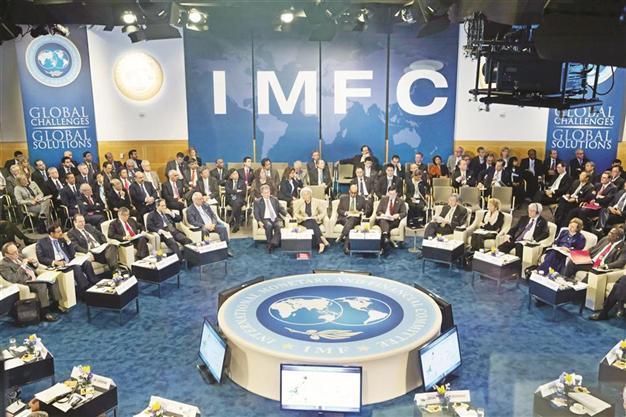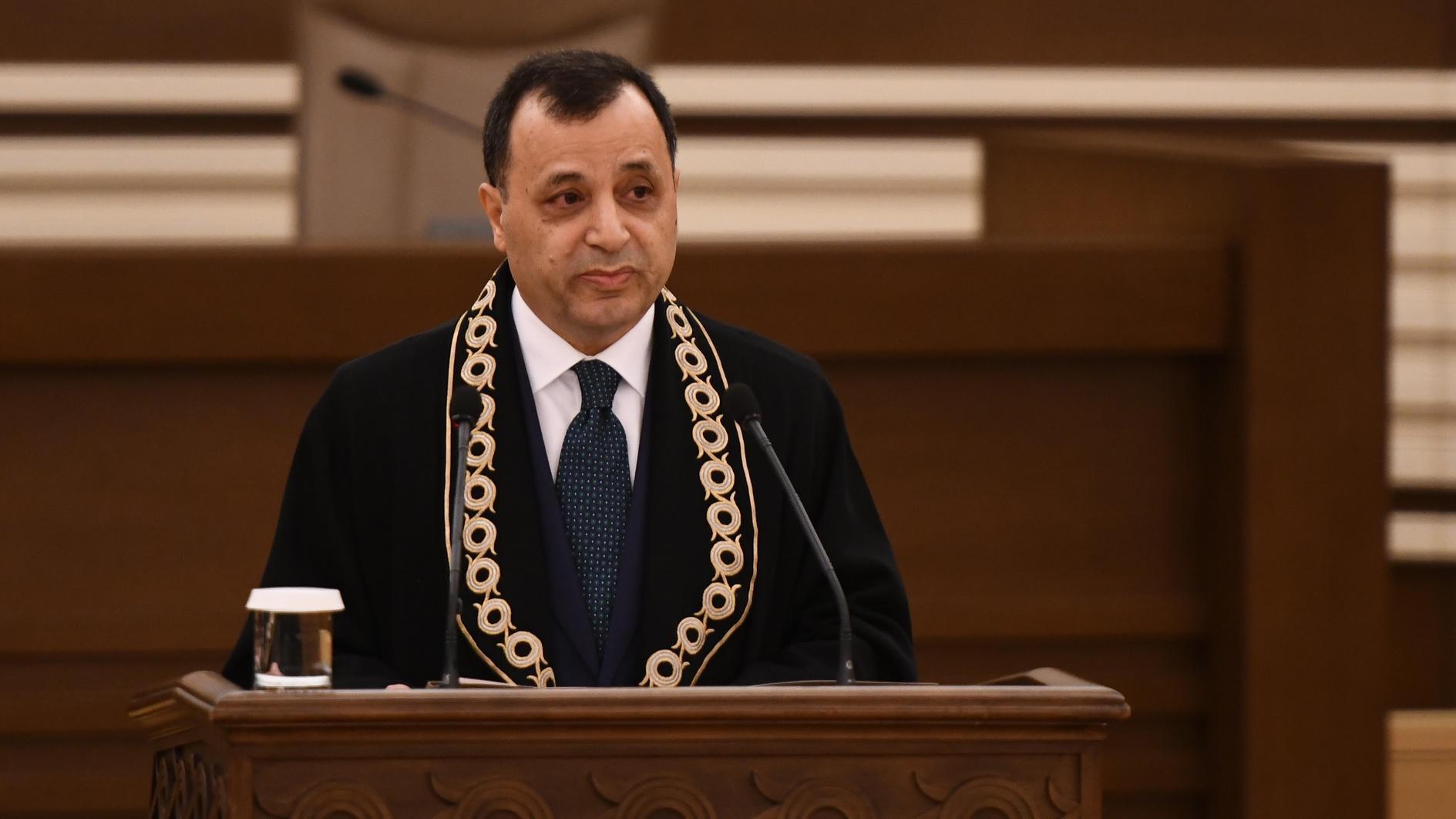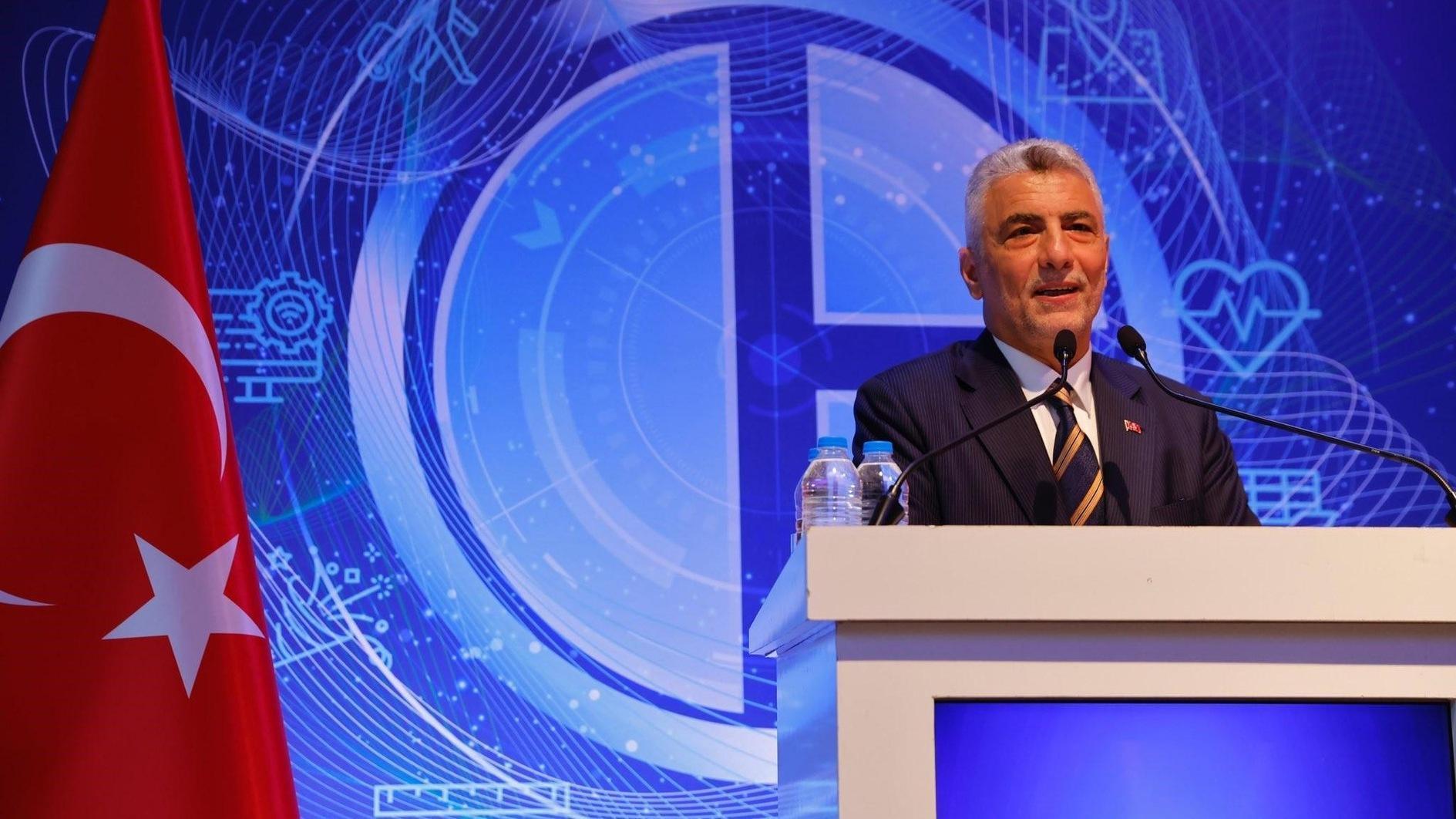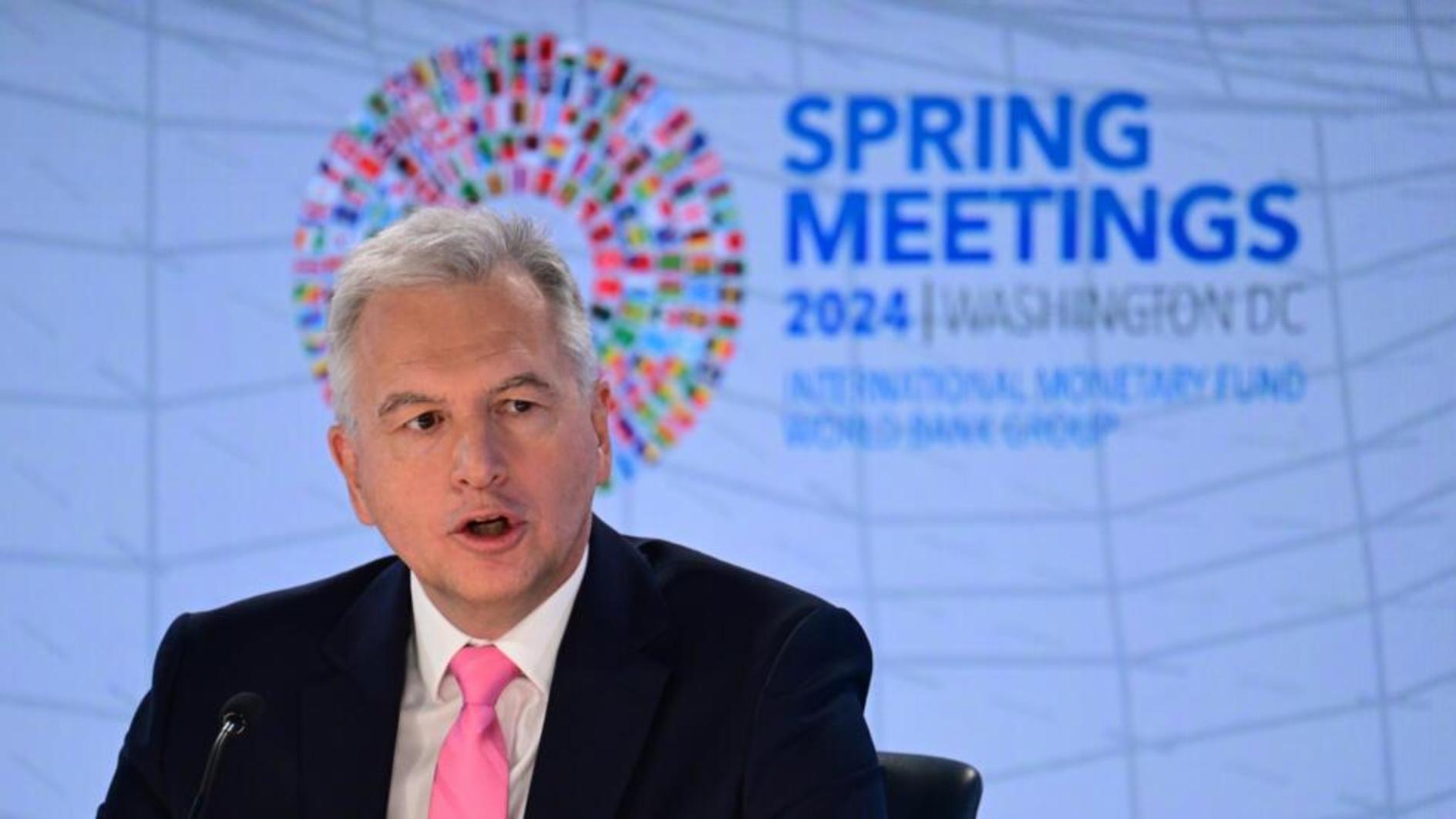IMF urges countries to take actions to raise confidence in global economy
WASHINGTON

IMF Managing Director Christine Lagarde (C) speaks at the 40th anniversary of the International Monetary and Financial Committee (IMFC) meeting as finance ministers and bank governors listen at the IMF Headquarters in Washington. AFP photo
Global finance officials have said monetary policy alone was not enough to restore confidence in the shaky global economy as they urged countries to take other steps to reinvigorate growth and create jobs.“We need to act decisively to nurture a sustainable recovery and restore the resilience of the global economy,” the International Monetary Fund’s steering committee said at the conclusion of the world lender’s spring meeting on April 20.
Central banks in the biggest economies should continue their accommodative monetary policies amid an uneven and weak economic recovery, the International Monetary and Financial Committee said in a communiqué.
Easy-money initiatives alone, however, cannot be counted upon to provide sufficient stimulus, it said as it called for “credible” plans to tighten budgets over time and structural reforms to make economies more productive.
“The commodity that is in shortest supply now is confidence,” Singaporean Finance Minister Tharman Shanmugaratnam, chairman of the IMFC.
IMF to boost oversight of central bank stimulus
The IMF will step up surveillance of potential negative effects from unprecedented central bank stimulus in advanced economies, IMF chief Christine Lagarde said.
“The central bankers have very much jumped into an unknown landscape, uncharted territory, as they have said,” Lagarde said following a meeting of the IMF’s steering body.
“There is clearly a common view that we should do further work and investigation and academic research to make sure that we identify the risks and the benefits of any exit.” Lagarde said that under the current circumstances, the unusual measures taken by the central banks in advanced economies “is appropriate.” Shanmugaratnam, emphasized that emerging-market economies needed to take advantage of their solid growth and “use this time to build up buffers” against the volatility of capital flows.
However, global finance officials endorsed a new World Bank goal to end extreme global poverty by 2030 and emphasized that its focus should be on ensuring that the poorest benefit from strong growth and rising prosperity in developing nations.
“For the first time in history we have committed to setting a target to end poverty,” World Bank President Jim Yong Kim said on Saturday following a meeting of the World Bank’s Development Committee. “We are no longer dreaming of a world free of poverty; we have set an expiration date for extreme poverty,” he added.
The goal aimed to reduce extreme poverty to 3 percent globally and targets the bottom 40 percent of people living in each country in the developing world.
The new World Bank target aim to guide the work of the institution, and coincides with efforts by the United Nations to draw up a post-2015 poverty strategy to replace existing goals.
The Development Committee called for a “robust” donor fund-raising campaign by the World Bank’s fund for its poorest borrowers and urged “strong participation” by all countries.
Complied from Reuters and Agence France-Presse stories by the Daily news staff.
















